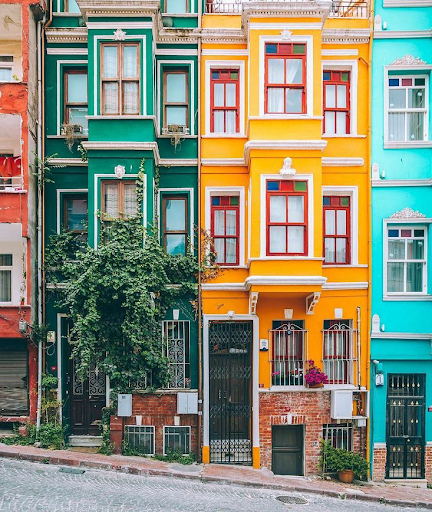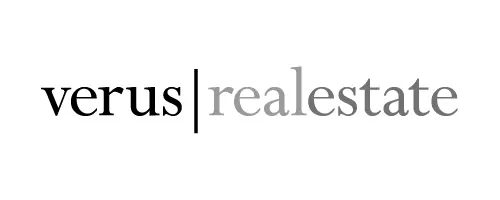TURKEY
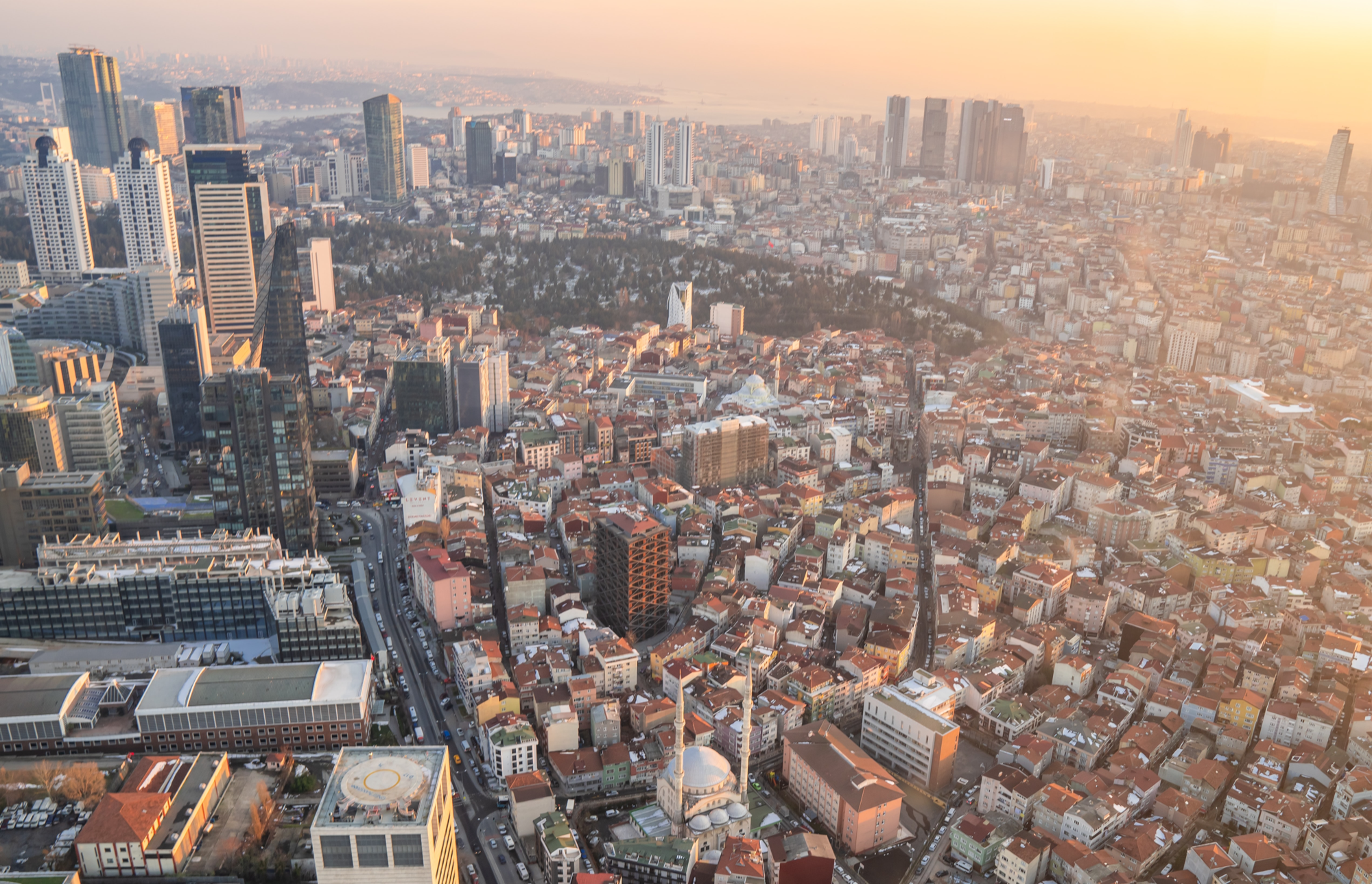
Steeped in history with a landscape that encompasses beaches and soaring mountains, Turkey has acted as the gateway between Europe and Asia for thousands of years. Being a place of trade and of exchanging cultures has made Turkey a richly diverse country. The point where East meets West, the wealth of culture and breadth of influences has left its mark and is revealed in the country’s mouthwatering culinary landscape, as well as in the innumerable religious monuments and archaeological sites.
Let's have a look at some of the most popular Turkey destinations.
Istanbul
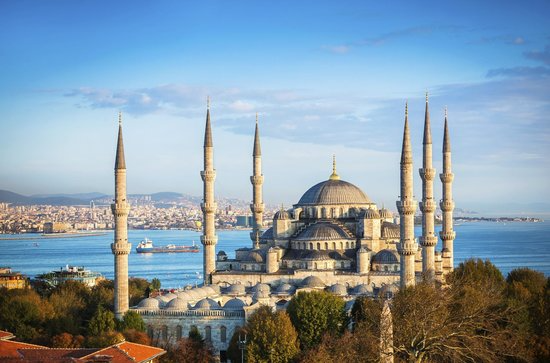
Once serving as the capital of the Ottoman and Byzantine Empires, Istanbul today is the largest city in Turkey and one of the largest in the world. Istanbul stretches across both sides of the Bosphorus, a narrow strait that connects Asia and Europe, making it the only city in the world spanning two continents. Impressive architecture, historic sites, dining, shopping, nightlife and exotic atmosphere - all make Istanbul one of the world’s top tourist destinations.
Once serving as the capital of the Ottoman and Byzantine Empires, Istanbul today is the largest city in Turkey and one of the largest in the world. Istanbul stretches across both sides of the Bosphorus, a narrow strait that connects Asia and Europe, making it the only city in the world spanning two continents. Impressive architecture, historic sites, dining, shopping, nightlife and exotic atmosphere - all make Istanbul one of the world’s top tourist destinations.
The Old City is where most of the city’s impressive historic sites are found, which include the Hagia Sophia, Blue Mosque and Topkapi Palace. Another important district is New City, known for its modern day attractions, skyscrapers and shopping malls. Beyoglu and Galata are popular zones for nightlife and entertainment, while the Bosphorus area is home to beautiful palaces, waterfront mansions and urban parks.
There is no shortage of exciting things to see and do in Istanbul. A shopping affair not to be missed is the Grand Bazaar, one of the world’s oldest and largest covered markets. Visiting a Turkish bath is also a great way to experience the local culture. The nightlife scene in Istanbul abounds in numerous restaurants, pubs and nightclubs to suit every budget and preference.
Cappadocia
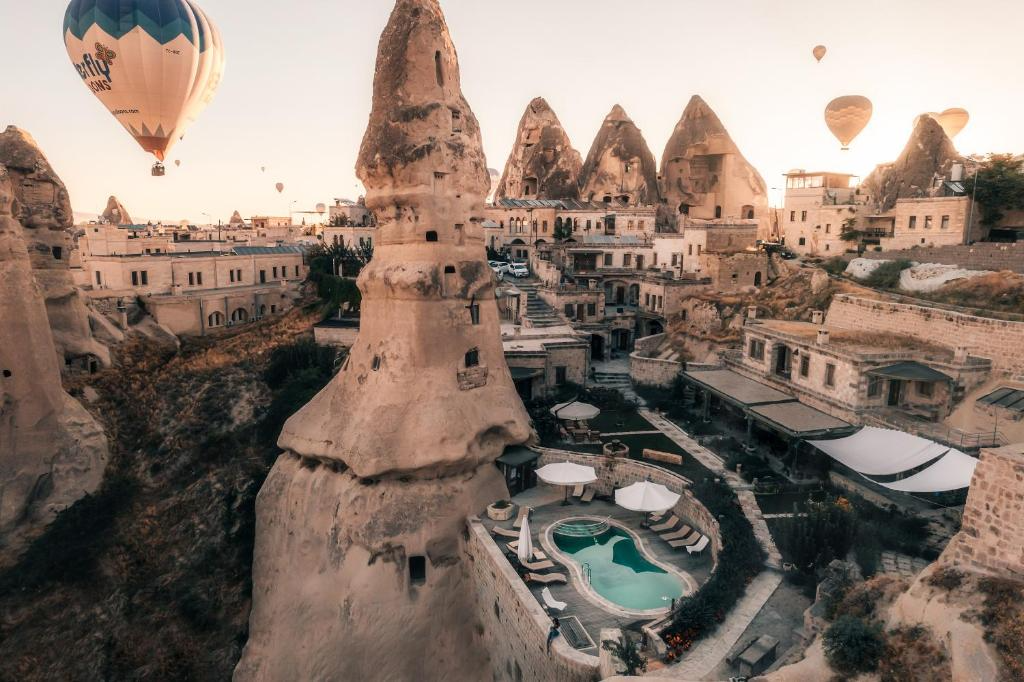
Situated in Central Anatolia of Turkey, Cappadocia is best known for its fairytale landscape of unusual formations resembling chimneys, cones, mushrooms and pinnacles. Natural processes such as ancient volcanic eruptions and erosion have all sculpted these odd formations over the ages, with some of them rising as much as 130 feet (40 meters) high. However, thousands of years ago, mankind added remarkable touches to the landscape by carving out houses, churches and underground cities from the soft rock.
Today, the region’s natural wonders and historic sites make it a popular destination. While much of Cappadocia is located in the province of Nevsehir, some of the main towns in the region are Ürgüp, Göreme, Avanos, Ortahisar and Mustafapasa. Many of these towns offer hotels, restaurants, nightlife options and attractions such as sightseeing balloon flights, museums, rock castles, fairy chimneys, underground tunnels, old Greek villages, monasteries and handicraft markets. Some of the caves in the region are actually hotels and cater to tourists.
Ephesus
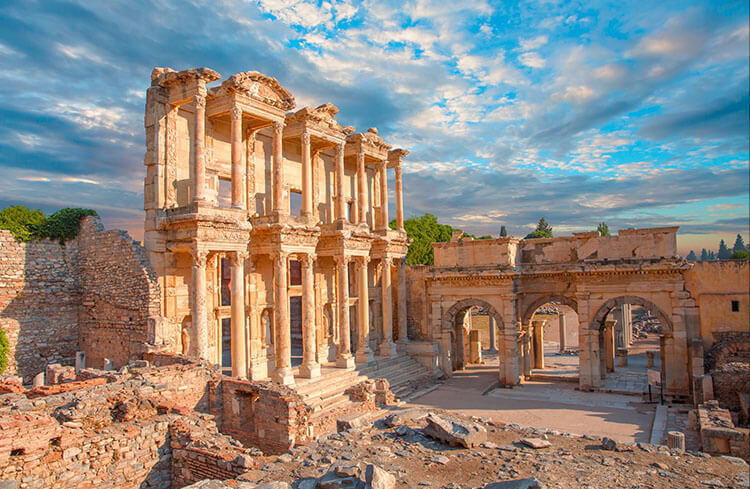
Europe’s most complete classical metropolis, Ephesus is an ancient site located in Aegean Turkey. By the 1st century BC, Ephesus was one of the largest cities in all of the Roman Empire, boasting one of the Seven Wonders of the Ancient World, the Temple of Artemis. The ruins of Ephesus are well preserved and contained within a large archaeological site, making it one of Turkey’s most popular tourist attractions.
Without question, the most famous structure in Ephesus is the Temple of Artemis. The temple was once the largest on the planet, showcasing just how important the city of Ephesus was. Unfortunately, the temple itself was largely destroyed around the fifth century, but it is still possible to tour the ruins.
Some of the most recently excavated attractions in Ephesus, and certainly some of the most popular, are the Terraced Houses. These were the homes of the richest residents of Ephesus in approximately the first century, and they were built in a modern Roman style.
No trip to Ephesus would be complete without seeing the famed Library of Celsus. Built in 123 AD, the library was once one of the largest libraries in the ancient world, coming in third after the libraries of Alexandria and Pergamum. The library has been restored, making it easier to see its two-story design, columns and capitals.
Bodrum
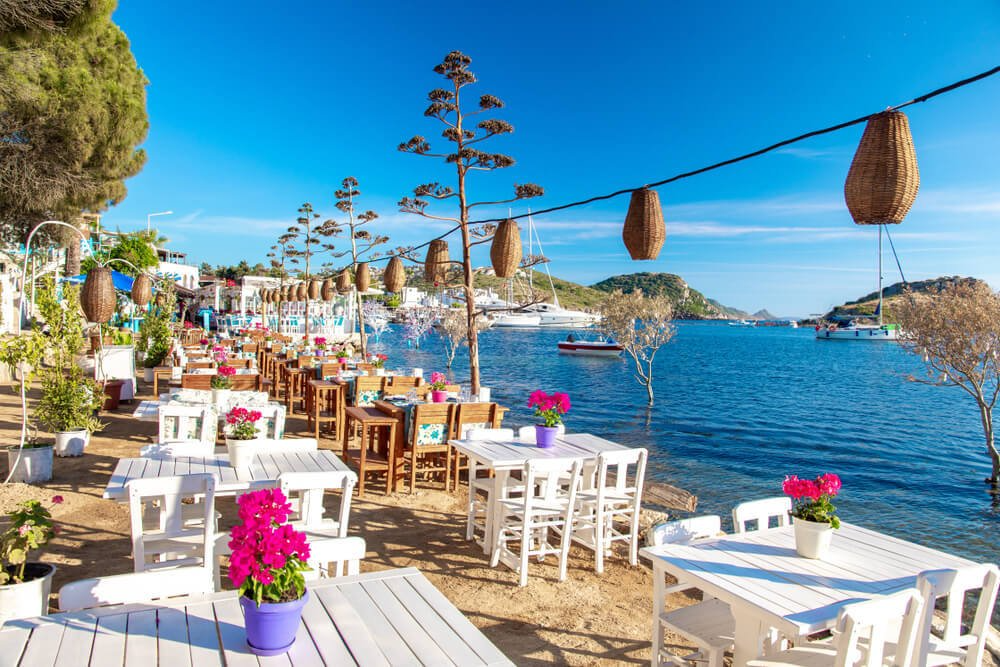
Located in the Mugla Province in the southern Aegean region of Turkey, Bodrum is the site of the ancient fortified city, Halicarnassus, which was once home to marble buildings, temples, statues, paved streets and the Mausoleum, one of the Seven Wonders of the Ancient World.
On Bodrum’s eastern side, tourists will find a beautiful beach overlooking brilliant blue water. Near the beach there are plenty of cafes, bars and nightclubs. On the western side of town one can find the marina, shopping centers and restaurants.
No visit to Bodrum would be complete without seeing the Castle of St. Peter, also known as Bodrum Castle. Built in 1402 by the Knights Hospitaller, it now operates as a museum. Other sights include the last remains of the Mausoleum, an ancient amphitheater and the Myndos Gate, which was once the scene of a bloody battle during a siege by Alexander the Great.
Besides sightseeing, other things to see and do in Bodrum include the award-winning Bodrum Museum of Underwater Archaeology which is housed inside Bodrum Castle, historic windmills, Turkish saunas and mud baths, windsurfing, scuba diving and boat tours that feature nightclubs and glass-bottomed dance floors.
Antalya
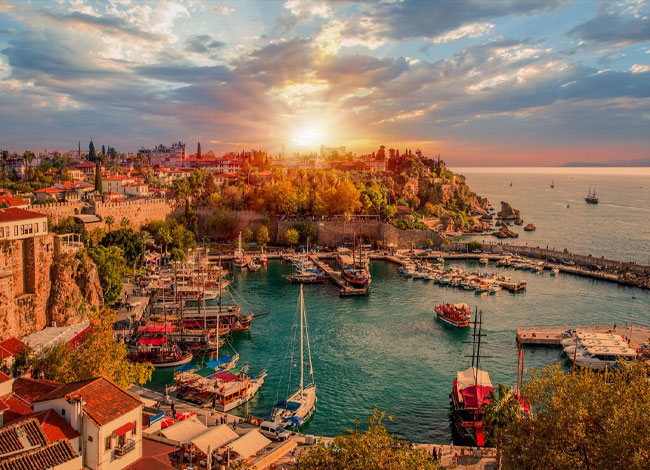
Nestled along the beautiful Turkish Riviera on the Mediterranean coastline, Antalya is a large, vibrant city welcoming tourists with numerous resorts, hotels, bars and restaurants. Spectacular scenery frames the city with gorgeous beaches and lush green mountains dotted with ancient ruins. From swimming and sailing to mountain climbing, sightseeing and family fun, Antalya offers something for everyone.
A walk around Kaleiçi, the Old Quarter, offers a step back into the city’s ancient past with views of the old city walls, Roman gates, maze-like streets and historic structures that include the Clock Tower and beautiful, old churches, mosques and temples. At the heart of the Old Quarter is the Cumhuriyet Square, surrounded by shops, cafes, Turkish baths and street performers.
Just as Antalya’s surroundings contain a wealth of historical and artistic treasures, the city centre boasts a thriving cultural scene. The 251 Soul is a great place to listen to jazz, funk and soul artists in an upscale atmosphere. If you’re looking for exhibitions and theatre performances, the Haşim İşcan Culture Centre and Antalya State Theatre offer live stage acts, art galleries and more.
Ankara
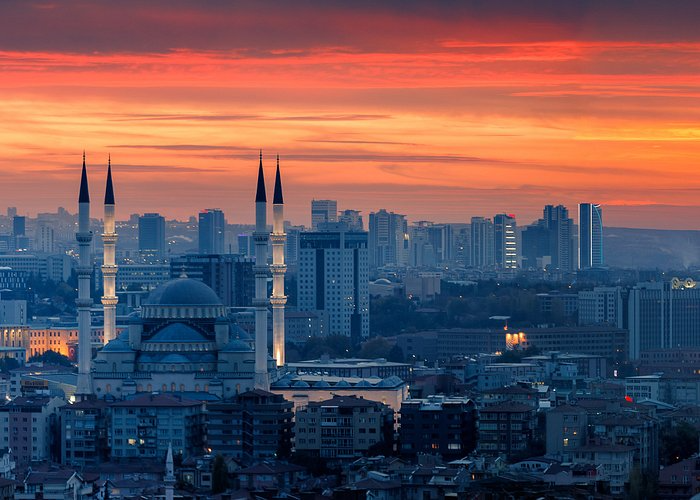
Turkey’s capital city, Ankara, is a sprawling, modern city home to government buildings, commercial businesses, universities and foreign embassies. Located right in the center of the country and the Anatolia region, Ankara is an important transportation hub, linking nationals and tourists alike to other major destinations in Turkey.
However, Ankara is not all business. This bustling city also offers a few historic sites and some arts and culture. An old city once inhabited by various cultures including Hittite, Greek, Roman, Byzantine and Ottoman - Ankara is riddled with ancient structures and ruins reflecting its history. Some of the most notable of these are the Temple of Augustus, the Citadel, and a Roman Theatre. Numerous historic mosques can also be found throughout the city. An important 20th century landmark, Anitkabir, is a mausoleum housing the tomb of Turkey’s first President, Mustafa Kemal Atatürk.
Try to time your Ankara trip so it coincides with a fantastic festival. The Ankara International Film Festival runs yearly from April to May, with around a dozen events a day over the month. Then there’s the Ankara Music Festival, which sees world-class European and Turkish music arrive each April courtesy of international musical institutions and local cultural organizations. Flying Broom International Women’s Film Festival takes place each May and celebrates women’s contributions to filmmaking. In December, Ankara International Dance Festival holds various concerts, shows and workshops by internationally renowned dancers and artists in a celebration of the performing arts and fashion industries.
Which Locations to Invest in Turkey
With global inflation rising and the COVID crisis entering third year, investment in the real estate sector by 2022 has proved to be a haven for those wishing to save their money value from significantly higher inflation levels. Turkey's real estate sector was the most distinctive in the global real estate market in 2021. Real estate in Turkey has maintained its purchasing value through a significant rise in prices exceeding 100%, in parallel with high demand rates and an active movement of buying and selling by Turkish and foreign citizens. Rental revenues in Turkey have increased over the past year and at the beginning of this year, increasing the reliability of investors in the real estate investment sector, which is adapted to high inflation rates and is resistant to various economic crises.
1. Istanbul

To invest in Istanbul property is to enter one of the world’s most promising real estate markets. This ever-revolving hub is a center of excellence for tourism, education, business, economy, and trade investments. Every day, hundreds of apartments, villas, and commercial properties are bought and sold, as the city works around the clock to become one of the globe’s top financial hubs.
Istanbul plays an enormous part in Turkey’s 2023 vision plan to be a top-performing country, and aside from that, it is the country’s beating heart even though it isn’t the capital. Therefore, real estate investors from around the world flock to boost their portfolio and tap into masses of capital appreciation potential. So, if you are an investor or a home buyer who wants to own property in this city that has shaped historical timelines over the centuries, what do you need to know so your investment benefits you?
Where to Invest in Istanbul Property
Asian Versus European Istanbul
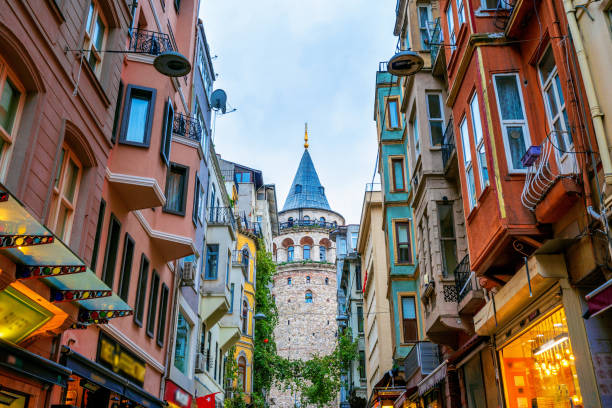
When it comes to real estate, if you look at any portfolio, then you’ll see that most of it revolves around the European side. However, the Asian side also presents a lot of opportunities, and places like Kadikoy and Uskudar are high profile because of frequent ferry transport connections. Sabiha Gokcen airport services the Asian side, whereas the new Istanbul airport, Turkey’s biggest and most ambitious megaproject, services the European districts. When complete, it will be the world’s biggest air travel hub connecting residents to over 300 countries around the globe.
Most Expensive Districts for Property
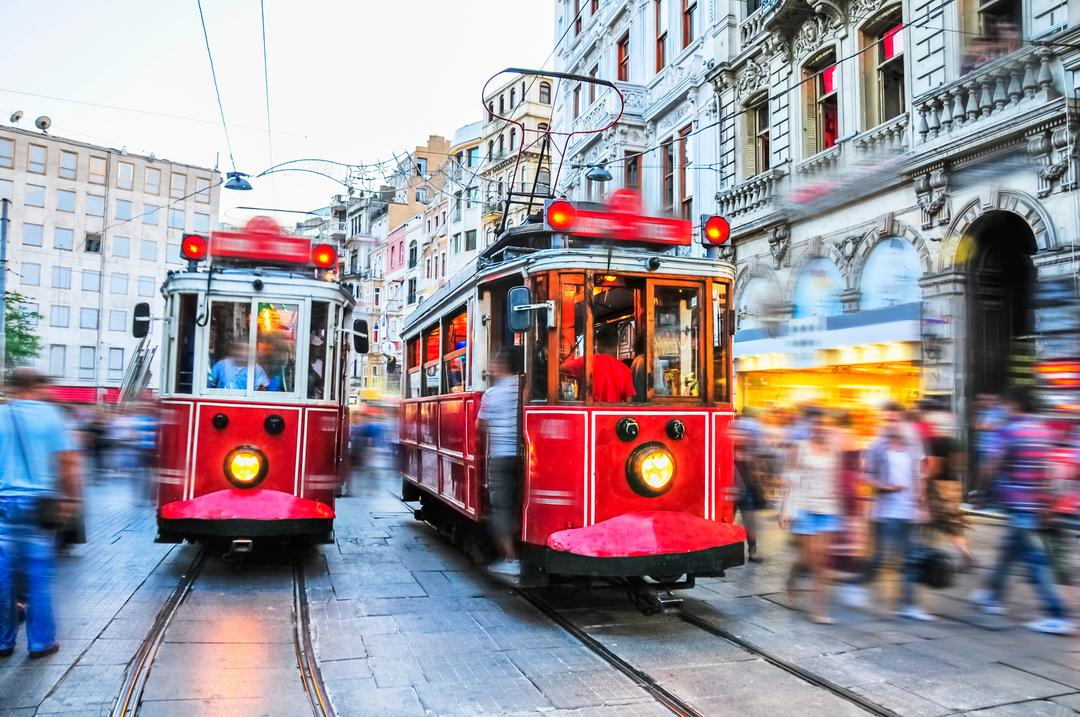
The city’s massive size encompasses 39 different districts. Some are more prominent on the housing market and therefore command a higher price per square meter. An excellent example is Besiktas. This high-profile area is one of the most desirable places to live and work. Any neighborhood lining the Bosphorus shores will command a higher price. Besides, the Ottoman princes’ island mansions and yali mansions are millionaire properties, with the general rule that if you have to ask the price, you can’t afford it.
Best Areas to Invest
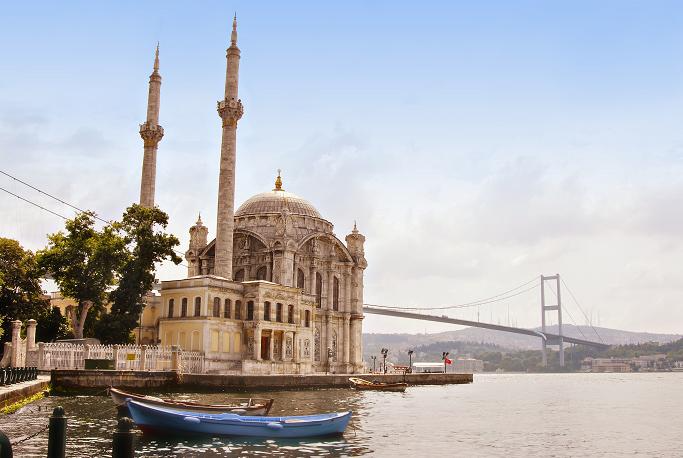
Even though Istanbul is an ever-revolving hub, it is not an area for short-term investments. Instead, it offers ideal mid to long term potential, especially in the European side, where local councils are pouring billions into upgrading and implementing state-of-the-art infrastructure and an excellent transport network.
These outskirt districts also attract investors because of mega projects like the airport, but for house buyers, a big lure is the modern buildings. Many are lifestyle residences comprising apartments, and duplexes with a range of on-site facilities like swimming pools, gyms, saunas, and landscaped gardens. Some developers, besides offering off-plan prices, also offer cash discounts. Places in the outskirt European areas to look at include Esenyurt, Beylikduzu, and Atasehir.
Buy-to-let Properties
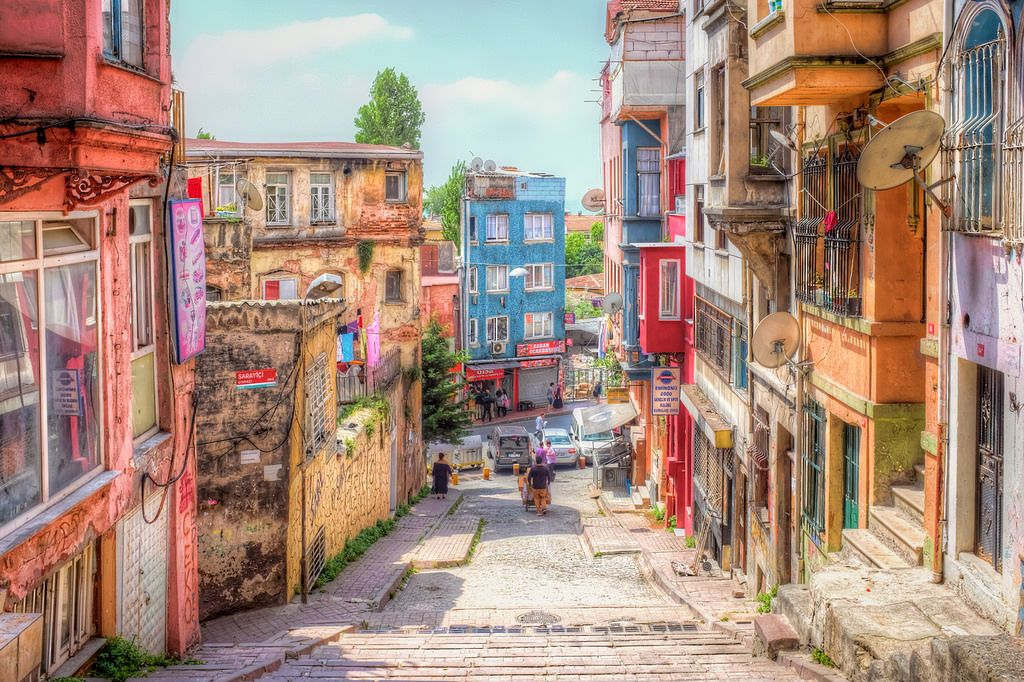
Istanbul is also a hub for buy-to-let properties. If you aim to capture the tourism market, look at the Beyoglu district in what is known as new Istanbul, or the old part Fatih district, that includes iconic landmarks like the Hagia Sophia, Blue Mosque and Topkapi Palace. Naturally, given the city’s high profile status, it is also a significant business travel hub. Central business districts are Levent and Maslak on the European side. At the same time, Sisli is a retail mecca boasting of enormous shopping malls and many commercial premises coming up for sale every week.
2. Ankara
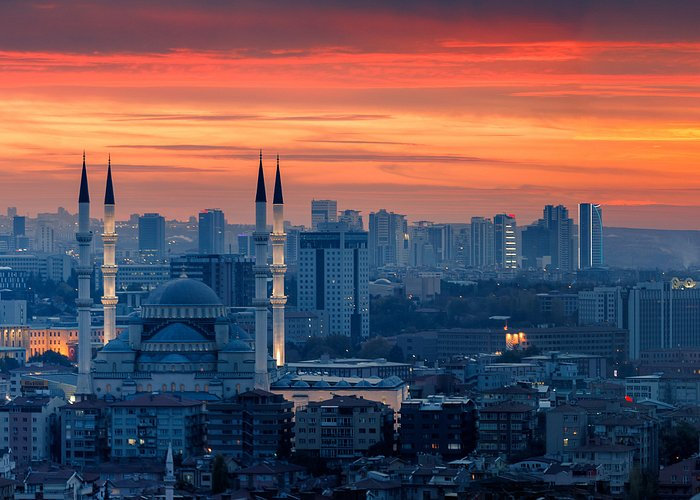
Ankara is one of the main promising investment prospects for businessmen, thanks to its many investment components, represented by modern and developed areas, strong infrastructure, and diverse tourist places, which support the establishment of investments and ensure their success to a large extent.
The presence of many developed areas in Ankara prepares a strong ground for building real estate projects, and its location in central areas near the tourist attractions on the one hand, and its proximity to shopping centers and government, health, and educational institutions, on the other hand, makes it an ideal choice for investment. The most prominent areas in Ankara are:
- Çankaya
- Keçiören
- Mamak
- Altındağ
- Sincan
The Çankaya district is one of the most preferred areas in the Turkish capital by investors and traders, including the headquarters of embassies and ministries, and the most modern and sophisticated residential complexes in Ankara are concentrated. Many investors turned their attention to real estate investment in Turkey in general, and Ankara real estate in particular, as it constitutes the political pole of the country and the economic and industrial center after Istanbul.
Those facts are confirmed by the figures issued by the Turkish Statistics Authority, related to the sales of apartments in Turkey in general, during October of the current year 2021, in which Ankara came in second place after Istanbul in the percentage of real estate sales, after achieving sales of 13,466 apartments, and a rate of 9.8% of apartment sales throughout Turkey.
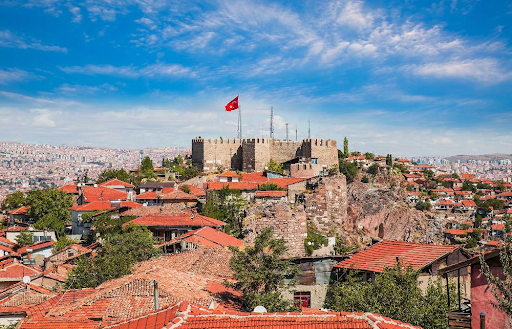
The real estate sector in Ankara has also witnessed an increasing demand for real estate by foreign investors in recent times, and foreign investments have witnessed great activity in this city, as Ankara achieved third place in Turkey, in terms of foreign sales of apartments during the first ten months of 2021. After registering, the number of real estate sales amounted to 2,755 apartments.
Advantages of real estate investment in Ankara
The advantages of real estate investment in Ankara can be summarized through the following points:
- Most of the consulates, embassies, ministries and state institutions are located in Ankara
- Ankara is the second economic center of the country after Istanbul.
- Ankara provides a more relaxed and calm lifestyle compared to Istanbul.
- Prices for real estate in Ankara are much more affordable than in Istanbul.
- Obtaining a fixed, continuous, and guaranteed monthly financial return.
- An increasing value of property in the long term
3. Antalya
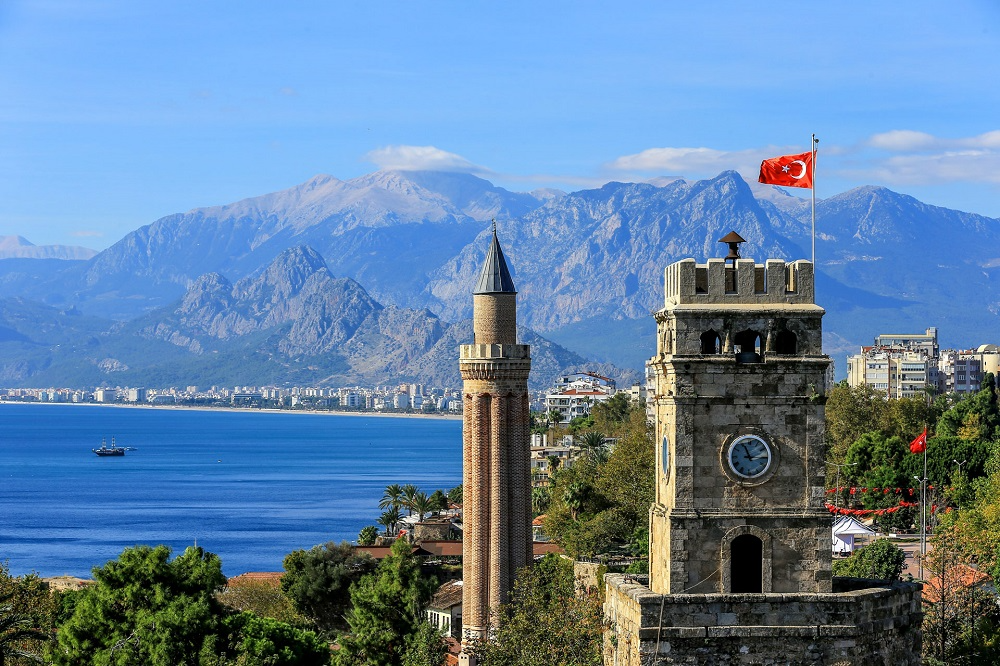
Real estate in Antalya wears a gold crown as a top hotspot for property buyers and investors. Sitting on the eastern Mediterranean coastline of Turkey, the province stretches from Alanya to Kas. Comprising a bustling city center, and smaller coastal resorts, it always surprises newcomers, both foreigners and Turks alike, and offers the ideal opportunity for a healthy real estate investment.
Backed by the green Taurus mountain range and fronted by sandy beaches and the crystal blue Mediterranean Sea, it is the second most popular holiday destination in Turkey. Covering over 20,000 square kilometers, business, investment property, travel, education, food, culture, and arts thrive in the area.
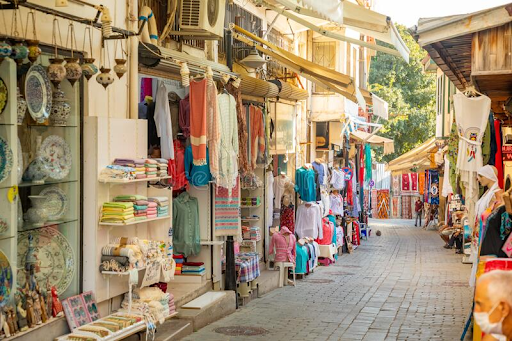
Thousands of expats living in the region enjoy a laid-back lifestyle that far outranks life in their home countries. Hot summers with 40-degree temperatures in July and August bring out beach lovers from all four corners of the world. While in Spring, Autumn and Winter, people with other interests take advantage of cool days, to see popular tourist attractions and historical tour sites. Other than that, it offers everything a worthy destination should: a vibrant nightlife, beautiful beaches, countless shopping malls, unrivaled arts and cultural opportunities.
10 Reasons Property Owners Like Antalya
- Affordable yearly running costs
- Massive potential for rental property because of a strong tourism industry
- The simple home-buying process takes as little as a week to complete.
- Low purchasing expenses
- Easy to get year-round residency permits for those looking at relocation
- Freehold ownership
- Mass potential for appreciation
- Ideal candidate for diversifying a capital investment portfolio
- Excellent value per square meter
- Choice of modern or traditional architecture
Popular Places in Antalya to Buy Real Estate
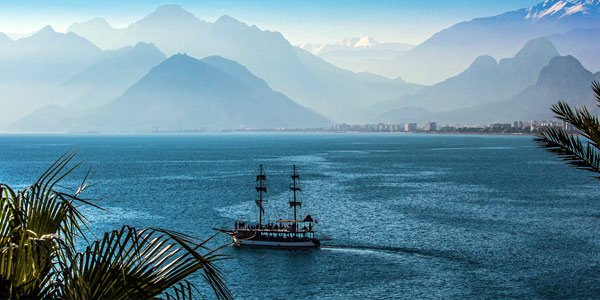
Central Konyaalti: In the heart of the city center, this residential neighborhood is, without a doubt, the most active sector of the property market. The 7-kilometer beach often ranks on Trip Advisor as one of the best in Turkey, and with all amenities, and a good transport network, it is easy to understand why it is so popular with homebuyers. Konyaalti is the ideal place to look for penthouses with panoramic sea-view. A flat for sale at the new marina will suit those who like to sail.
Delightful Side: Those who want to live in a smaller district should look at Side. Famous for its ancient Greco-Roman ruins and the Temple of Apollo, the town keeps a discreet reputation, and the best real estate market caters for middle-class and luxury buyers. Most property is residential real estate with luxury apartments and villas for sale.
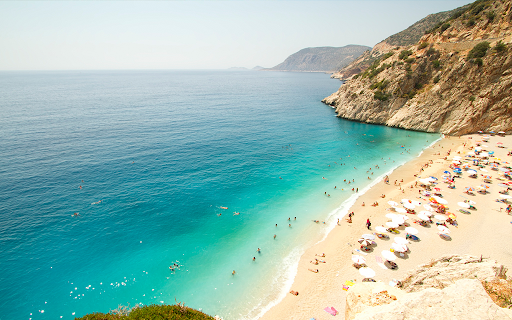
Golfing Villas in Belek: As the golfing capital of Turkey, the world-class courses have hosted famous players like Tiger Woods. Belek’s other niche of expertise is 5-star spa and wellness hotels. Despite its fame, apartment and villa prices are affordable. Many people also build custom-made luxury villas for easy access to swing their clubs.
Bustling Alanya: This town, on the verge of becoming a city, is Turkey’s rising star. Tourism is showing massive increases in visitor figures, and investors, attracted by affordable property prices, particularly in the Mahmutlar district. Many property listings are open-plan, single-family apartments and ideal for first-time buyers in Turkey.
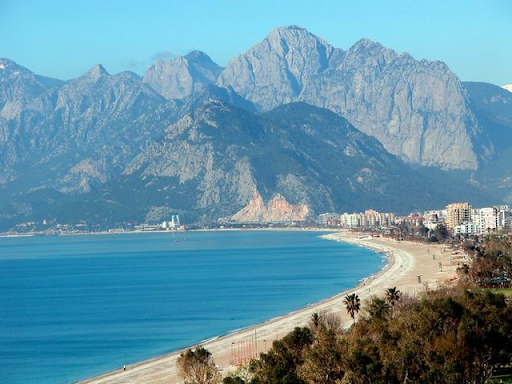
Upmarket Kalkan: Sitting on the outskirts of the province, Kalkan’s reputation as a luxury villa destination, has attracted many foreign home buyers looking for an exclusive lifestyle. As part of the Turkish Riviera, it offers style, indulgence, and prestigious luxury in abundance.
In the past two years, there has been an increase in real estate prices in the city, reaching a minimum of 8% and a maximum of 23%. Rental revenues during the past period have been steadily increasing due to rapid growth in tourism.
Overview of the Property Market and Appreciation of Property Values in Turkey
Turkey is an attractive country because of its transportation facilities, tourism, entertainment opportunities, and convention tourism. Istanbul, where Europe and Asia meet, emerges as a haven for real estate investments and is a rising star full of real estate opportunities and stands out as a haven for high value-added and profitable real estate. High-interest rates and economic restraints have had an impact on the economy, and one of the impacts is a decline in real estate prices and a decline in the lira. The residential real estate market in Turkey is expected to register a CAGR of approximately 8% during the forecast period (2022-2027).
During the COVID-19 pandemic, falling interest rates kept the Turkish residential market activity going in 2020. The year saw the biggest number of home sales in history. Rising interest rates resulted in a smaller share of mortgaged sales in the overall total in the first half of 2021 compared to the same period in 2020.

The lack of available land for development in city centers, particularly in Istanbul, has forced residential developers to shift toward the periphery with large-scale projects. Mass housing development is also increasing rapidly. The Housing Development Administration (TOKI) is leading mass housing development and regeneration projects, with a focus on providing social housing for low and middle-income households. Improper city planning and poor infrastructure due to rapid urbanization have created a demand for earthquake-resilient homes in Turkey.
According to the Central Bank's House Price Index (HPI), house prices in Turkey grew by 32.39% year-over-year in April 2021. Inflation reached 17.14% during the same period, while the Turkish Lira depreciated by 19.6% versus the US Dollar, with a 17.6% interest return on one-year deposits. House price increases, which had been trailing alternative investment instrument returns and inflation since the beginning of 2017, surpassed inflation and deposit interest rates in the first half of 2021, as they had done the previous year.
- In Istanbul, Turkey’s largest city and most expensive housing market, the average house price rose by 20.8% during the year to Q1 2021 to $782 per sq. m. Adjusted for inflation, house prices were up a modest 4.5% y-o-y.
- In Ankara, the country’s capital, house prices rose by 28.3% y-o-y in Q1 2021 (11% inflation-adjusted) to an average of $368 per sq. m.
- In Izmir, the country’s third largest city, house prices went up by almost 40% y-o-y in Q1 2021 (21% inflation-adjusted) to $608 per sq. m.
Increasing FDI Flow in the Residential Real Estate Market in Turkey
The number of house sales to foreigners has accelerated in Turkey due to legislative amendments that eased citizenship with investment limits for foreigners, campaigns launched by real estate developers and banks, and spiking foreign currency that brought an annual record of 78.4% increase in 2021 compared to the previous year.
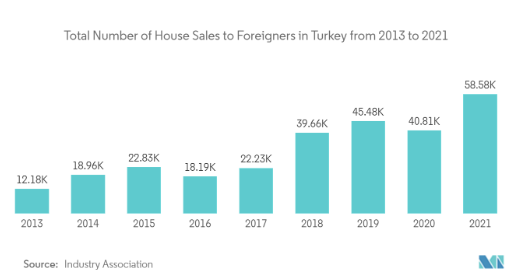
According to official sources, the country's most populous city, Istanbul, has continued to be the top choice for foreign buyers. Residential property sales to foreigners in the city in September 2021 increased by 25% year-on-year to 2995 units, compared to 2370 units in September 2020. On the other hand, when it comes to nationalities, Iranian citizens continue to top the list of foreign buyers of residential properties. Iraq was followed by Iran with 7622 units, Russians with 4494 units, Afghanistan with 2508 units, and Germans with 2062 units in 2021.
Chinese investment in Turkey has increased dramatically, and it is expected to increase in the coming years. They generally invest in luxury properties and beautifully designed five-star managed apartments, with services and excellent facilities.
Average Returns from Investing in Real Estate
Istanbul
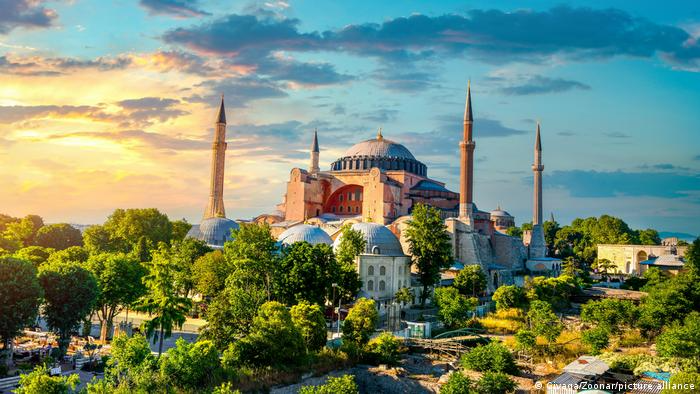
Turkey has become one of the 10 best places to buy real estate overseas and Istanbul was the world’s 8th most visited city in the world in 2020. Istanbul and Turkey, in general, are enjoying strong economic growth and adapting modern technologies in infrastructure. Istanbul is considered the largest city in Europe in terms of population, its fast-growing population is creating a huge demand for residential space (renting or buying), thus, Istanbul real estate investment could be a great source to gain higher ROI. According to the real estate index and regional report of 2021, the average price of a 100 square meter property purchased in Istanbul was between 490.791 TL and 817.985 TL. Hence, real estate prices in Istanbul increased by 121.76% in the last two years, and by 110.09% in the last four years. The real estate average ROI in Istanbul is about 74%.
Ankara
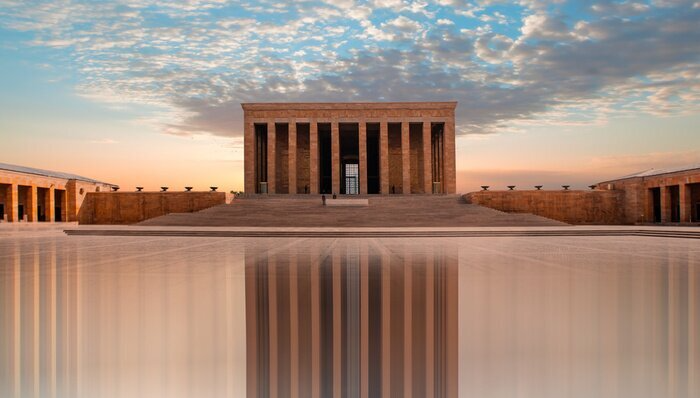
Ankara is the capital of Turkey and is considered to be the second-largest city in terms of economic growth and demand for real estate after Istanbul. Compared to Istanbul, property prices in Ankara are somewhat lower, which makes it suitable for the middle class. Recent studies have shown that the average price of a 100 square meter property purchased in Ankara was between 241.461 TL and 402.435 TL. Real estate prices in Ankara increased by 101.14% in the last 2 years, and 105.16% in the last four years. The demand for owning real estate in Ankara is growing with an average ROI of 49%.
Antalya
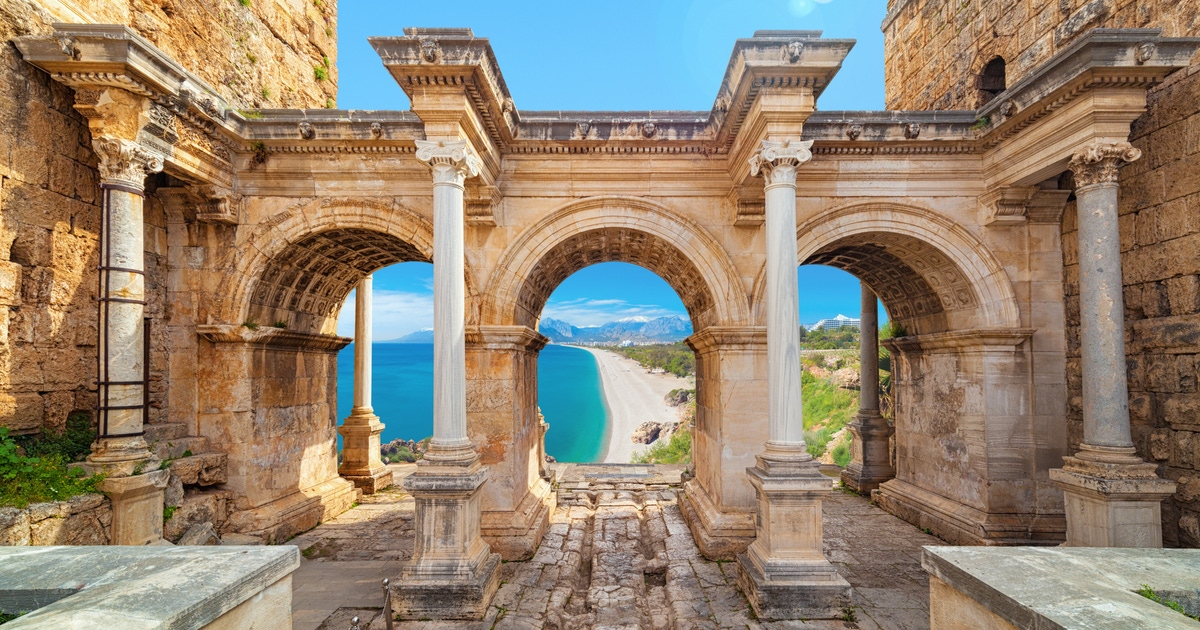
Antalya is a perfect place to spend your holiday. It is full of modern luxury resorts and residences. And many real estate buyers have taken Antalya as a place for investing or residing. Housing prices are much more affordable in Antalya compared to Istanbul and Izmir. The average residential square meter price in Antalya is 4.544 TL. Accordingly, the average price of a 100 square meter property purchased in Antalya is between 340.804 TL and 568.006 TL. The prices have increased by 178.38% in the last 2 years, and by 250.48% in the last 4 years. An average return on investment is 78.16%
Izmir
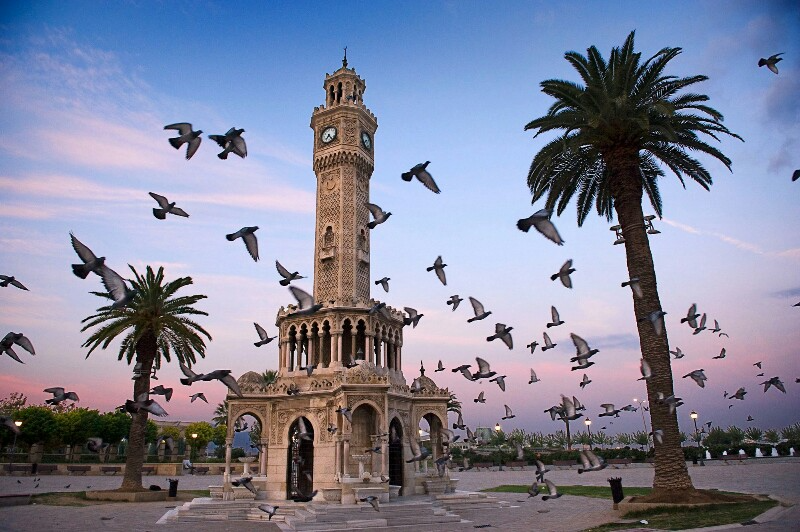
Recently, the city has witnessed a significant increase in terms of international investments, especially in the real estate sector. Izmir is the third-largest city in Turkey and is considered as an important center for tourism and sea transportation. The average price of a 100 square meter real estate purchased in İzmir in the first quarter of 2021 was between 400.139 TL and 666.899 TL. In Izmir, real estate prices rose by 115.29% in the last 2 years, and by 142.40% in the last 4 years. An average ROI is 55.26% on real estate investment.
Bursa
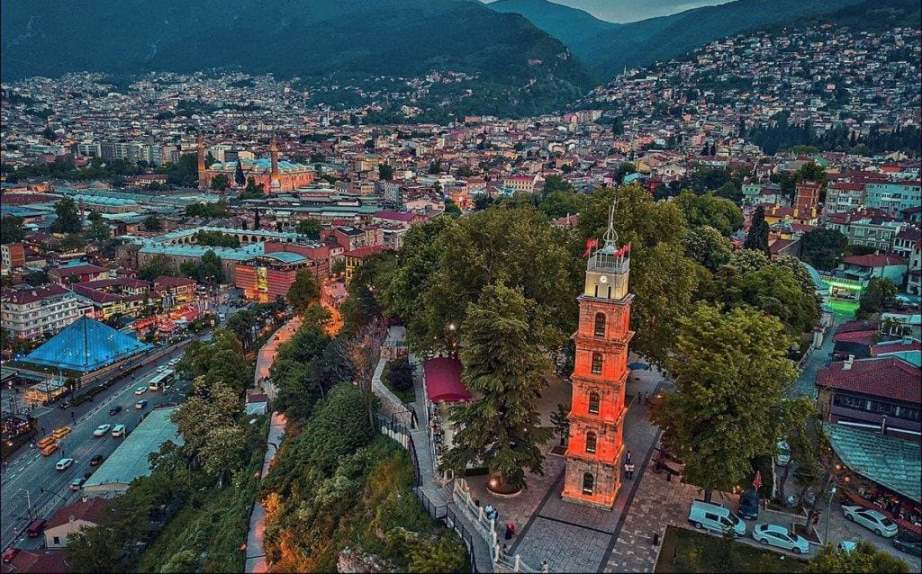
The demand for real estate acquisition in Bursa has grown after the opening of the Osman Gazi Bridge in 2016 which reduced the time between Istanbul and Bursa. Residential real estate prices rose by 104.24% in the last two years and by 120.13% in the last four years according to Endeksa, with approximately 55.92% return on investment.
Reasons to Invest in Turkish Property
- The possibility of applying for Turkish citizenship, for those who own a property worth $250,000 or more, obtain a Turkish passport and benefit from the full benefits and rights of citizenship.
- Or obtaining a real estate residence in Turkey if the property price is less than $250,000.
- Turkey's real estate is distinguished by its quality and high level of luxury when compared to its acceptable prices compared to the rest of Europe.
- A profitable return on investment is based on the strength of tourism in Turkey, where the possibility of renting apartments during the multiple tourist seasons throughout the year is available at good and encouraging prices.
- Relatively low cost of living with high quality compared to Europe and countries in the region.
- Allowing investors to link their foreign investments between East and West.
- Creating an opportunity for children to study in Turkish universities, both private and public, with international schools available in various languages.
- Living in a conservative environment close to the eastern and Arab environment and enjoying the civilization of European countries.
How To Invest In Turkey Real Estate

If you’re a seasoned investor, navigating a new locale will come naturally. You’ll go in, find yourself a few reliable locals to help you, and get the job done. But if you are just starting to invest in real estate or diversify your investment portfolio (geographically or in terms of asset classes), then you might need a little bit more hand-holding.
Real Estate Agents And Their Commission Fees
First things first, you’ll need to find yourself a real estate agent, unless you’re set on scouring the Turkish property ads yourself.
You need to find someone reliable and it’d be great if it was a person that was recommended to you, since it’s quite common that real estate agencies in Turkey provide unqualified services and very often try to profit from foreigners. The legal maximum limit for the real estate agent commission is 4% of the property value, which is fairly average when you compare it to other countries in the world.
The law states that the rate should be divided equally between the buyer and the seller, but of course, there are nuances. In some cases, the seller may stipulate that the burden of the payment of the agent commission fees is totally on the buyer. This is especially done when the seller is in no rush to sell and can patiently sit and wait for a buyer to come along that will agree with these terms.
Fees and Property Taxes in Turkey

There are multiple property taxes you’ll need to pay if you invest in real estate in Turkey.
- The purchasing tax, or title deed tax, is a rather substantial 4% of its sale price. Normally it’s split with half paid by the buyer while the seller pays the remaining 2%.
- VAT, or value-added tax, is also applied to real estate in Turkey. Commercial properties have a VAT tax of 18%. Meanwhile, residential properties have a smaller VAT tax that can range from 1% to 18% but is generally on the lower end of that scale. Foreign investors have the option of waiving the VAT tax if they meet specific conditions, such as agreeing to not sell the property for at least a year.
- You’re also required to pay annual real estate taxes in Turkey. They’re cheaper than in most other countries, ranging from 0.1% to 0.6% of a property’s total value. Nonetheless, annual taxes are an ongoing cost that you should consider before investing here.
The Title Deed
When it comes to the title deed – the legal document that actually passes the property ownership from someone else to you – the fee is also 4% (2020). And just the same, the rate should be divided equally between the buyer and the seller. The law dictates that. Yet, in some cases, the seller leaves the payment burden on the buyer in full. The title deed fee on real estate in Turkey is paid after scheduling an appointment at the land registry before the title deed transfer commences. So, if the seller you’re dealing with requires you to pay the real estate agent commission and the title deed fees in full (which they legally can), you’re looking at an 8% up-front payment, before the changing of hands of the property even begins. That’s definitely something to keep in mind. For a $200,000 property, you’re looking at $16,000 in fees, for example.
VAT

You do NOT have to pay VAT when:
- You are the first owner of a house or an apartment in a new project, or
- You are buying from an individual whose livelihood isn’t selling properties.
Note that buying land is an entirely different ballgame and it should be done with even more caution. Different rules on VAT and other fees apply.
And you definitely have to pay VAT when:
- You’re a foreign buyer and you’re purchasing from a Turkish company that sells pre-owned properties as their main field of business.
So, there are a few good ways to avoid having to pay VAT if you’re smart with your property search. If you want to go the traditional route and buy a pre-owned apartment in the older part of Istanbul, for example, look for sellers who are regular people (not companies or agencies) to avoid VAT.
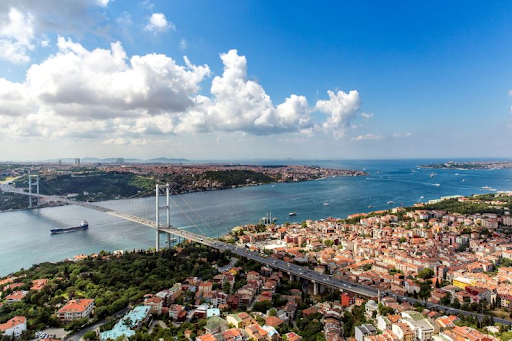
How VAT Is Calculated
Have you determined that you are liable to pay VAT? It’s not necessarily bad news. It’s based on multiple factors and is calculated in rather complex ways. The two main things you must take into consideration is the date of the building license and the surface area of the property.
- If the building license has been obtained before 01.01.2013 and the surface area is 150m2 or below, then the VAT rate charged is 1%.
- However, if the surface area exceeds 150m2, then the VAT jumps to 18%. You better avoid anything this large.
Then come buildings with a license that was obtained between 01.01.2013 and 31.12.2016:
- If the per-square-meter value is between 500TL and 1,000TL, then the VAT charged is 8%.
- Going for a higher value property? Anything over 1,000TL gets an 18% VAT charge.
And for the newest properties:
- If a building license was obtained on or after 01.01.2017 and if the per-square-meter value is between 1,000TL and 2,000TL, then the VAT rate is 8%.
- If the value is above 2,000TL, you will get charged 18%.
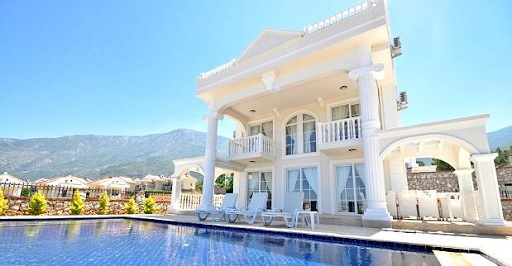
You get the pattern. Lower priced and older properties carry lower VAT charges than newer and more expensive properties.
It’s obvious that the laws have changed quite a bit in the last decade, hence the different rates. So, as always, you should keep in mind that the above-mentioned rates can change at any time. The Turkish government isn’t exactly known for extreme stability.
One of the things that the VAT rate depends on is the surface area of the apartment that you’re looking to buy. However, the number that you can find on ads doesn’t usually match the actual living space of the apartment. Sometimes, by quite a lot. For example, say you find a place advertised that is 80 square meters. You’re interested, so you go to view the apartment. Strangely enough, it feels much smaller than 80m2. That’s because it is - the 80m2 includes part of the communal garden and part of the stairwell too, which are technically ‘yours’ but aren’t livable space. This is one of the peculiarities of Turkish real estate, so make sure you never buy a place without visiting it first.
Property Tax
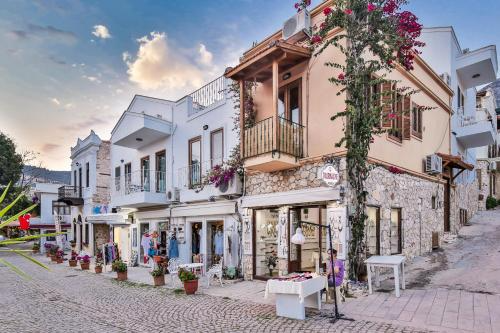
Property tax is just one of the “taxes on wealth” that are applied in Turkey. It must be paid every year in two equal installments.
The annual tax rate is 0.2% for apartments and houses within the borders of a metropolitan municipality, for example, Istanbul. So, the owner of an apartment in central Istanbul that’s worth 1,500,000TL will pay 3,000TL per year in total. The first installment must be paid in May and the second one in November. If you’re selling a property, you’re obligated to pay the accumulated property tax burden from all of the previous years before a title deed transfer can commence. In other words, no buyer will want a property with outstanding property tax debt.
Other Turkey Real Estate Purchase Fees
There are four more fees in addition to the fees mentioned above that don’t amount to much but that you should still keep in mind:
- Revolving Capital Service Fee. This fee depends on the area of the city/country where you’re buying property. For example, if you buy in most of Istanbul, you’d pay around $60.
- Land Registry Service Fee for Foreigners. This is a fee of approximately $110 (2020) that changes annually.
- Appraisal Report Fee. It is mandatory to issue an appraisal report for the property that you wish to buy. These reports can only be issued by companies that are registered on the Turkish Capital Market Board’s list. The fee ranges from $230 to $460, approximately.
- Expert Translator Fee (Optional). Expert translators are different from sworn translators at a notary. Only a few expert translators exist in the market, which makes them expensive. However, they are only needed if the foreign buyer wishes to attend the Land Registry himself and not via an attorney who has Power of Attorney.
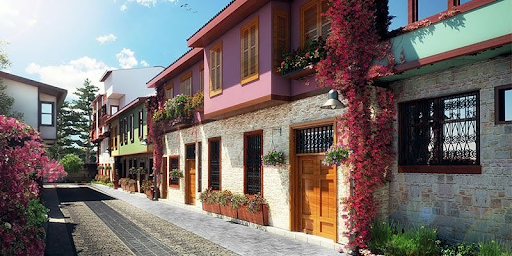
Insurance, Fees And Bills
- Mandatory earthquake insurance. Turkey sits in a zone of relatively high seismic activity, so every property owner must pay a mandatory earthquake insurance premium. This annual payment is approximately $30. Not having earthquake insurance will mean your property purchase will be delayed by the land registry.
- Environment Tax. This tax depends on the usage of water in the property. In Istanbul, it’s 0.47TL per cubic meter. This tax is charged with every water bill, so your tenants should cover it.
- Maintenance Fees. This is a fee that depends on the type and location of the property. Normally, the tenants will pay the maintenance fees in Turkey, so if you’ve purchased a property for investment, it’d be wise to find a tenant too.
- Bills. All of the bills, including electricity, water, gas and waste management, are traditionally paid by the tenants, as everywhere in the world. If the property is vacant and no one is using the utilities, a small part of the bills will still have to be paid for service maintenance.
Acquisition of Turkey Citizenship by Investment

Types of Investments
A foreigner who meets any of the following conditions in accordance with Article 20 of the Regulation on the Application of the Turkish Citizenship Law may acquire Turkish citizenship by the President of the Republic's decree in accordance with subparagraph (b) of the first paragraph of Article 12 of the Law.
- Acquisition of Citizenship through Fixed Capital Investment: Investors who make a fixed capital investment of at least US $500,000,
- Acquisition of Citizenship by Investing in Real Estate: Investors who purchase real estate in the amount of at least US $250,000* or conclude a promise of sale agreement by paying this amount in advance and annotate in the land registry records that it should not be sold for three years,
- Acquisition of Citizenship by Providing Employment: Investors who create employment for at least 50 people,
- Acquisition of Citizenship by Opening an Account in Banks in Turkey: Investors who deposit at least US $500,000 to banks operating in Turkey and commit to keeping it for three years,
- Acquisition of Citizenship by Investing in Government Debt Instruments: Investors who purchase Government debt instruments in the amount of at least US $500,000 and commit to keeping them for three years,
- Acquisition of Citizenship by Investing in Investment Fund and Venture Capital: Investors who purchase a real estate investment fund share or a venture capital investment fund share in the amount of at least US $500,000 and commit to keeping it for three years can acquire Turkish Citizenship.
*At the beginning of April 2022 it was reported by several Turkish media sources that the Turkish Government intends to increase the minimum real estate investment for their Citizenship by Investment programme from $250,000 to $400,000. The decision was made during a cabinet meeting that took place on 12th April, where government officials discussed a proposal to amend clause “b” in the legislation to increase the cost of the real estate route. Turkey’s CBI programme has seen substantial growth in the last few years and a sudden surge of demand recently from both Russian and Ukrainian applicants looking to escape the conflict. Turkey’s CBI programme is one of the only options on the market still currently open to Russian investors. An official announcement is still yet to be published to confirm when these price changes will be implemented but it is likely to be within a matter of days or coming weeks. Many suspect an announcement will be made following the end of Ramadan, so potentially in the first week of May.
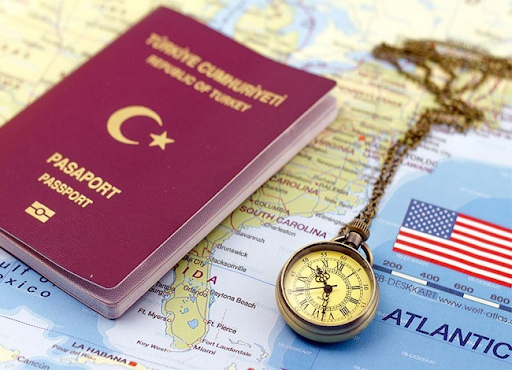
How to Apply for a Turkey Investment Visa?
The process of applying for a Turkish Investment Visa is as follows:
- Choose a qualifying investment. You should talk to your advisors to determine which investment is best for you, depending on your finances, family structure, and your end goals.
- Obtain a Certificate of Eligibility. Depending on your investment, there are different authorities responsible for issuing a certificate of eligibility. For example, you must approach the Turkish General Directorate of Land Registry and Cadaster of the Ministry of Environment and Urbanization for investment in real estate.
- Open a Turkish bank account. You have to open a bank account in Turkey, where you must deposit your money. Your advisors and legal representatives can help you set up the account.
- Apply for a Turkish residence permit. Once your investment is approved, you can apply for a residence permit at the Turkish Provincial Directorate of Immigration Administration. The residence permit is issued immediately after, and you can use it to live in Turkey while finalizing your investment and applying for citizenship.
- Make your investment. You have to finalize your investment and collect all required documents, certificates, translations, etc., for the citizenship application.
- Apply for Turkey citizenship. As soon as you have made your investment, you can submit your application for Turkish citizenship at the Provincial Directorate of Census and Citizenship. This application is usually resolved within four months.
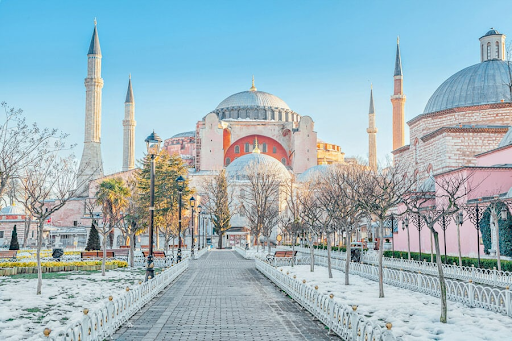
Where to Receive Certificate of Eligibility for Turkey Investor Visa?
To obtain a Certificate of Eligibility for investment in Turkey, you must apply to the following institutions (based on the nature of your investment):
- For investment in real estate – Turkish Land Registry and Cadaster of the Ministry of Environment and Urbanization.
- For a capital investment – Incentive Application and Foreign Capital of the Turkish Ministry of Industry and Technology.
- For a deposit in a Turkish bank account – Department of Financial Consumer Relations of the Banking Regulation and Supervision Agency.
- For an investment in government bonds – Turkish Ministry of Treasury and Finance.
- For purchasing real estate investment fund share or venture capital investment fund share – Department of the Brokerage Activities of the Capital Markets Board of Turkey.
- For establishing a company that will employ at least 50 people – General Directorate of International Labor of the Ministry of Family, Labor and Social Services.
Family Members of Turkey Investor Visa Applicants
If you apply for a Turkey Investor Visa, you can include the following family members in your application:
- Your spouse or partner.
- Children under the age of 18.
- Children up to 21 years of age who are financially dependent.
- Dependent elderly parents.
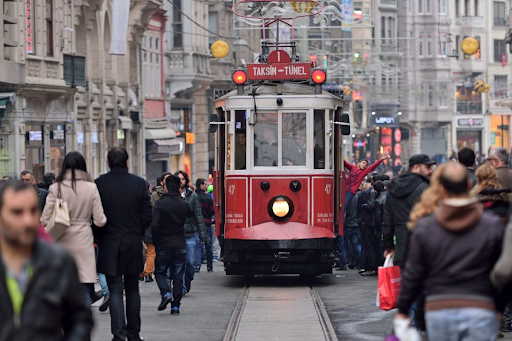
Documents for Turkey Investor Visa Application
- The documents needed for a Turkey Investor Visa application are:
- Passport (for each applicant).
- Proof of having made the necessary investment.
- A Turkish Tax Number.
- Document proving you have never stayed in Turkey illegally.
- Proof of having paid the necessary taxes and fees for the Turkey Investment Visa application.
- Criminal background (for each applicant).
- Birth certificate (for each applicant).
- Passport-size pictures (for each applicant).
- Marriage certificate (if applicable).
- Divorce certificate (if applicable).
- Death certificate (if applicable).
- Proof of health insurance that’s valid in Turkey (for each applicant).
Remember: The exact requirements will differ for each applicant, depending on the investment type, background, and nationality.
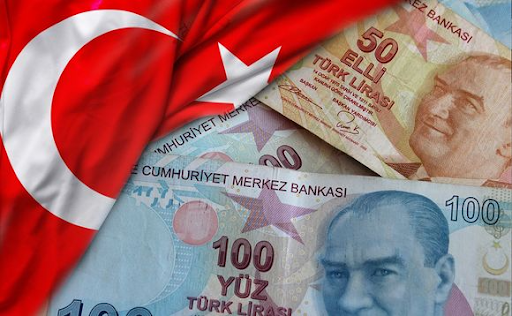
The Validity of Turkey Investor Visa
The Turkey Investor Visa is indefinite. After your investment, you can apply for Turkish citizenship – which is granted for life – and a Turkish passport. You have to renew your passport every ten years.
One of the main benefits of the Tukey Investor Visa is that you become eligible for the US’s E2 Investment Visa. The US has a treaty with 78 countries (including Turkey), granting applicants an E2 Visa in return for an investment of $100,000 to $200,000. Although the E2 Visa is non-immigrant (does not grant a Green Card), it is a five-year visa that can be renewed indefinitely. The reason the E2 is more desirable compared to the EB5 immigrant investment visa is due to the low investment requirement ($200,000 as opposed to $900,000). Considering that by investing in Turkey, you can obtain Turkish citizenship relatively quickly, many investors who have their eyes set on the US choose to go through this process: invest in Turkey, get a Turkish passport, apply for the E2 Visa.
